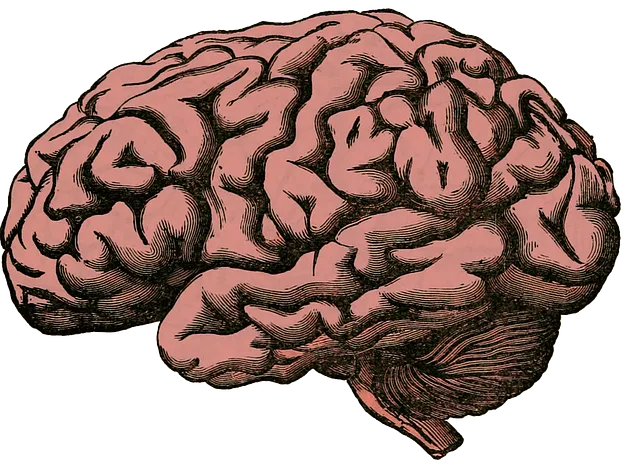The Kaiser Permanente behavioral health center in Littleton, a leading mental healthcare provider, specializes in crisis intervention. Their approach combines empathy, active listening, and evidence-based techniques to stabilize individuals immediately while fostering long-term resilience. Cultural sensitivity is paramount, ensuring interventions respect diverse backgrounds. Beyond immediate care, the center educates professionals through comprehensive programs on risk assessment and offers community-focused support post-crisis, including local therapy services and recovery programs.
In times of crisis, effective intervention strategies are paramount. This article provides a comprehensive guide on crisis intervention, focusing on the critical role played by institutions like the Kaiser Permanente Behavioral Health Center in Littleton. We explore essential aspects such as understanding crisis interventions, assessing triggers, implementing communication strategies, and offering post-intervention support. By delving into these key areas, individuals can better navigate and mitigate crises, ensuring the well-being of those in need. Discover how centers like Kaiser Permanente are revolutionizing care.
- Understanding Crisis Intervention: A Fundamental Approach
- The Role of Kaiser Permanente Behavioral Health Center Littleton
- Assessing the Crisis: Identifying Signs and Triggers
- Implementing Effective Communication Strategies
- Post-Intervention Support and Community Resources
Understanding Crisis Intervention: A Fundamental Approach

Crisis intervention is a critical component of mental healthcare, offering immediate support during moments of intense distress or traumatic events. At the Kaiser Permanente behavioral health center Littleton, professionals are trained to provide effective assistance, ensuring individuals receive the care they need during challenging times. This process involves a fundamental approach that combines empathy, active listening, and evidence-based techniques to stabilize individuals and promote their well-being.
Understanding crisis intervention requires a focus on both the individual’s immediate needs and underlying factors contributing to their distress. Cultural sensitivity in mental healthcare practice plays a significant role, ensuring that interventions are tailored to respect diverse beliefs, values, and backgrounds. Additionally, emotional intelligence and stress management techniques are integral to building rapport, facilitating open communication, and providing targeted support. Through these strategies, the Kaiser Permanente behavioral health center Littleton aims to not only address acute issues but also foster long-term resilience and coping mechanisms in individuals facing crises.
The Role of Kaiser Permanente Behavioral Health Center Littleton

The Kaiser Permanente Behavioral Health Center Littleton plays a pivotal role in crisis intervention strategies, particularly within the context of mental health support. As a leading healthcare provider, the center offers specialized services designed to address acute psychological crises and promote emotional healing processes. Their expertise lies in providing swift and effective interventions, ensuring individuals experiencing severe mental health episodes receive the necessary care.
The center’s contributions extend beyond immediate crisis management. They actively engage in educating mental health professionals through comprehensive programs that focus on risk assessment techniques. By sharing their knowledge and resources, Kaiser Permanente empowers practitioners to better recognize and mitigate risks associated with mental health crises. This collaborative approach fosters a network of support, enhancing the overall resilience of both patients and healthcare providers in navigating emotional challenges. Additionally, the center’s commitment to Mental Health Education Programs Design underscores its role as a pioneer in shaping effective strategies for crisis prevention and intervention within the community.
Assessing the Crisis: Identifying Signs and Triggers

When it comes to crisis intervention, the first step is crucial—assessing the situation to identify signs and triggers. At a Kaiser Permanente behavioral health center like Littleton, professionals are trained to recognize both overt and subtle indicators of distress. These can range from dramatic changes in behavior or mood to more subtle cues like increased social isolation or a drop in academic performance. By understanding these signals, interventionists can swiftly address the crisis before it escalates.
The process involves actively listening to individuals—be it patients, colleagues, or loved ones—and gathering relevant information. This may include discussing recent life events, changes in routine, or any mentions of feelings of hopelessness, anxiety, or suicidal ideation. The goal is to create a safe space where people feel comfortable sharing their experiences, much like what’s fostered through the Mental Wellness Podcast Series Production, which prioritizes open dialogue for Anxiety Relief and promoting Mental Wellness.
Implementing Effective Communication Strategies

Effective communication is a cornerstone of crisis intervention at Kaiser Permanente behavioral health center Littleton. When faced with individuals in distress, professionals must employ strategies that foster open dialogue and create a safe, non-judgmental space. This involves active listening, where the intervenor pays close attention to both verbal and nonverbal cues, ensuring they understand the individual’s needs and concerns accurately.
Cultural sensitivity in mental healthcare practice plays a significant role here. Professionals should be trained to adapt their communication style to respect diverse cultural backgrounds, languages, and beliefs. Incorporating Self-Awareness Exercises can help practitioners recognize personal biases and triggers, allowing them to respond with empathy and understanding. Burnout prevention is also essential; maintaining clear communication throughout the intervention process ensures that everyone involved remains engaged and focused on the individual’s well-being.
Post-Intervention Support and Community Resources

After a crisis intervention, providing ongoing support is crucial. The Kaiser Permanente behavioral health center in Littleton emphasizes the importance of community resources to ensure individuals receive comprehensive care. This includes connecting clients with local support groups, therapy services, and recovery programs tailored to their specific needs. By offering these resources, the center facilitates a seamless transition from acute care to long-term well-being.
Mental health professionals play a vital role in conducting risk assessments post-intervention. This assessment helps identify potential triggers or vulnerabilities that might lead to future crises. Through this process, they can develop personalized crisis intervention guidance, focusing on strategies for self-esteem improvement and coping mechanisms tailored to the individual’s unique circumstances.
Crisis intervention is a vital process that requires a structured yet adaptable approach, as highlighted by the guidance offered by centers like Kaiser Permanente Behavioral Health Center Littleton. By understanding the fundamental principles and utilizing effective communication strategies, professionals can navigate complex situations and provide much-needed support. The comprehensive resources and post-intervention services discussed in this article, including those available at Kaiser Permanente, underscore the importance of a holistic crisis management strategy. Embracing these strategies not only enhances individual well-being but also contributes to building stronger, more resilient communities.






